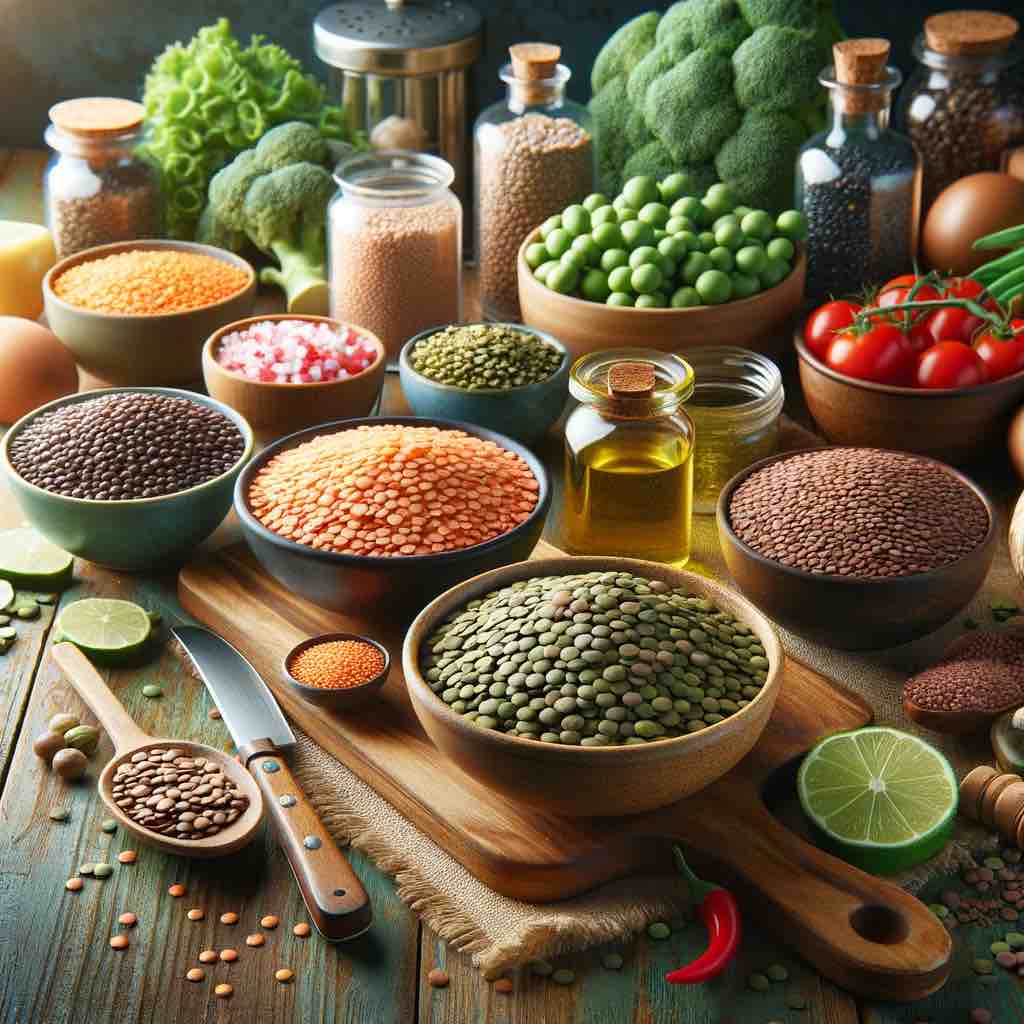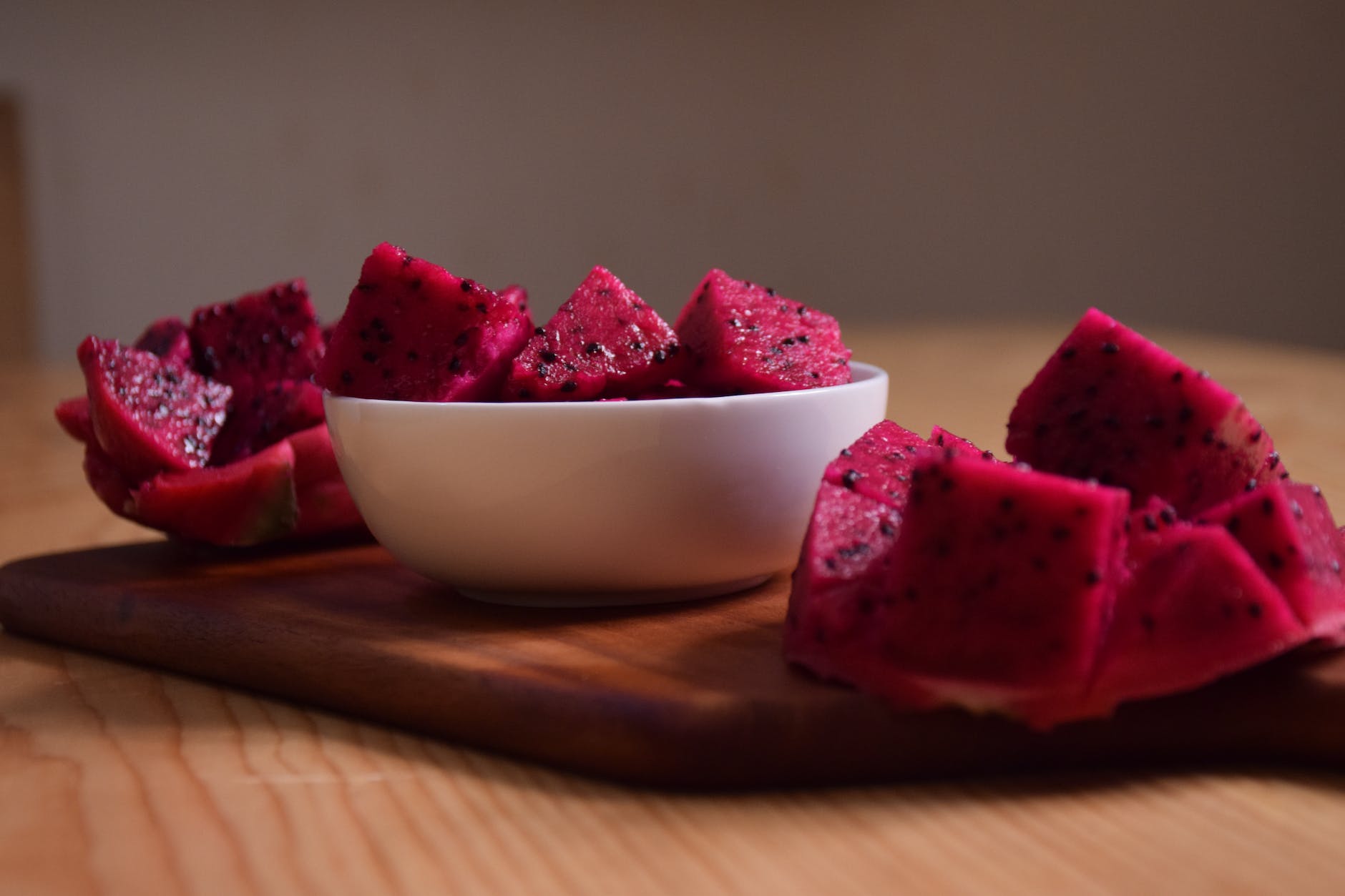
Introduction
When it comes to weight loss, potatoes often get a bad rap. Commonly dismissed as ‘unhealthy’ or ‘fattening’, these humble tubers have been sidelined in many diets. But what if we’ve been underestimating the potential of potatoes in our weight loss journey? Contrary to popular belief, when prepared and consumed correctly, potatoes can indeed be a nutritious and weight-loss-friendly food choice.
In this post, we’re going to dig deeper into the world of potatoes. We’ll uncover the truth behind their nutritional value, debunk common myths, and explore how these versatile vegetables can be incorporated into a balanced diet for effective weight loss. From their impressive nutrient profile to innovative and healthy ways of preparation, we’re about to reveal why potatoes might just be the unsung heroes of your weight loss plan. So, before you write off potatoes as a diet no-go, let’s give them a chance to show their true colors in the realm of health and nutrition.
Stay tuned as we explore how the misunderstood potato can be a delicious and smart addition to your weight loss menu.
The Nutritional Powerhouse: Unveiling the Benefits of Potatoes
Often overshadowed by their starchy nature, potatoes are in fact a powerhouse of nutrition. They’re not just about carbs; they bring a lot more to the table. A medium-sized potato is an excellent source of vitamins C and B6, crucial for immune system support and energy metabolism, respectively. But that’s not all. Potatoes are rich in minerals like potassium, which is vital for heart health, and magnesium, essential for bone health and muscle function. Plus, they offer iron, an important component for blood health.
But perhaps one of the most significant benefits of potatoes is their fiber content, especially when eaten with the skin. Dietary fiber is a key player in weight management. It helps you feel fuller for longer, thereby reducing the overall calorie intake, which is essential in a weight loss diet. Additionally, fiber aids in digestion and helps maintain steady blood sugar levels, preventing those spikes and crashes that can lead to overeating.
And let’s not forget about antioxidants. Potatoes, especially colored varieties like purple and red, are packed with these compounds. Antioxidants play a role in reducing inflammation and combating oxidative stress, contributing to overall health and potentially aiding in weight management.
In the next section, we’ll break down how these nutritional attributes of potatoes can be harnessed in a weight loss plan, challenging the myth that potatoes are merely ’empty carbs’.
Potatoes in Weight Loss: Busting the Carb Myth
It’s time to bust a common myth: Carbohydrates, including those found in potatoes, are not the enemy of weight loss. In fact, when consumed as part of a balanced diet, potatoes can be a valuable ally in your weight loss journey. The key is understanding how to include them healthily and mindfully.
Firstly, potatoes’ high fiber content makes them exceptionally filling. This satiety factor is crucial for weight management, as it helps prevent overeating and snacking on less healthy options. A medium potato contains only about 130 to 165 calories, making it a low-calorie yet satisfying choice.
Moreover, potatoes offer a unique benefit: They have a high satiety index. This means they can make you feel full and satisfied, helping with portion control – a critical aspect of any weight loss strategy. When paired with a balanced mix of proteins and non-starchy vegetables, a potato can be part of a nutritious, calorie-controlled meal.
However, it’s important to be mindful of how potatoes are prepared. Opting for healthier cooking methods like baking, boiling, or roasting instead of frying can make a significant difference. Avoiding calorie-laden toppings like butter, cheese, and sour cream is also crucial. Instead, experimenting with flavorful yet healthy toppings can enhance the nutritional profile of your potato-based meal without adding excessive calories.
In the next section, we’ll delve into the impact of potatoes on blood sugar levels and how to manage it effectively as part of a weight loss diet.
Managing Blood Sugar: Potatoes and Glycemic Impact
A common concern about potatoes in a diet is their effect on blood sugar levels. Yes, potatoes are high in starch, and they rank relatively high on the glycemic index, meaning they can cause a rapid spike in blood sugar. However, this doesn’t mean they can’t be part of a weight loss and health-conscious diet.
The trick is in the balance and combination of foods. When you pair potatoes with foods that have a lower glycemic impact, like lean proteins or non-starchy vegetables, you can mitigate the rapid rise in blood sugar. For instance, a meal comprising a small portion of potato, steamed broccoli, and grilled chicken breast provides a balanced mix of carbohydrates, protein, and fiber. This combination can help stabilize blood sugar levels and provide sustained energy, which is essential in preventing the hunger pangs that can lead to overeating.
Another factor to consider is the variety of the potato. Different types, such as sweet potatoes, red, purple, or yellow varieties, can have different effects on blood sugar. Some of these, like sweet potatoes, have lower glycemic indices than others, making them a better choice for maintaining stable blood sugar levels.
For individuals with prediabetes or diabetes, it’s crucial to consult with a healthcare provider or dietitian to determine the appropriate amount and type of potatoes that can be included in their diet.
Integrating Potatoes into Your Intermittent Fasting Regimen
Intermittent fasting (IF) has gained popularity as a flexible approach to weight loss and health improvement. It typically involves periods of fasting alternated with periods of eating. Integrating potatoes into your intermittent fasting regimen can be advantageous, provided it’s done thoughtfully. Here’s how potatoes can complement your IF journey:
- Breaking the Fast: When you break your fast, it’s important to start with foods that are gentle on your stomach yet nourishing. Potatoes can be an excellent choice. They are easy to digest and provide a good energy boost without overwhelming your digestive system. A simple boiled or baked potato with a sprinkle of herbs can be an ideal meal to start your eating window.
- Nutrient-Dense Meals: During your eating periods, it’s crucial to consume nutrient-dense foods to compensate for the fasting period. Potatoes are rich in vitamins, minerals, and fiber, making them an excellent choice for ensuring you’re getting the nutrients you need. Including a moderate portion of potatoes in one of your meals can help meet these nutritional requirements.
- Satiety and Portion Control: One of the challenges of intermittent fasting is managing hunger during fasting periods. The satiety factor of potatoes can be beneficial here. Eating a satisfying meal that includes potatoes during your eating window can help you feel fuller for longer, which can make fasting periods more manageable.
- Balanced Meals: It’s essential to balance your meals with a combination of carbohydrates, proteins, and healthy fats. Potatoes can be the carbohydrate component of a balanced meal. Pair them with lean proteins like grilled chicken or fish and a serving of healthy fats like avocado or nuts for a complete and nutritious meal.
- Post-Workout Nutrition: If you exercise during your eating window, potatoes can be a great post-workout meal component. They help replenish glycogen stores and provide essential nutrients for muscle recovery. A potato-based meal after your workout can aid in recovery and prepare you for the next fasting period.
Remember, while intermittent fasting, it’s not just about when you eat, but also what you eat. Potatoes can be a valuable addition to your IF plan, contributing to a balanced, nutritious diet that supports your weight loss and health goals.
Creative and Healthy Potato Preparations
Transforming the humble potato into a weight loss-friendly dish is all about creativity and healthy preparation techniques. Gone are the days of deep-fried and heavily buttered potatoes. Let’s explore some innovative ways to enjoy potatoes that are both delicious and conducive to your weight loss goals.
- Baking and Roasting: One of the simplest and healthiest ways to cook potatoes is by baking or roasting them. This method preserves the natural flavors and nutrients of the potato without the need for excess oil or fat. Experiment with herbs and spices like rosemary, thyme, or paprika for an added flavor boost.
- Boiling and Steaming: Boiled or steamed potatoes retain most of their nutrients and are low in calories. For a flavorful twist, try boiling potatoes with a clove of garlic or a sprig of dill. These methods are particularly good for making potato salads or mashed potatoes.
- Healthy Toppings and Add-ons: Replace traditional high-calorie toppings like sour cream and cheese with healthier alternatives. Greek yogurt, salsa, or a sprinkle of herbs can add a lot of flavors without piling on the calories. Toppings like steamed broccoli, diced garlic, and a dash of olive oil can turn a simple baked potato into a nutritious and filling meal.
- Experimenting with Potato Varieties: Don’t just stick to the traditional white potatoes. Explore the world of sweet potatoes, red, purple, and other varieties. Each type brings its unique nutritional profile and flavor, making your meals more interesting and healthful.
- Portion Control: Remember, portion size matters. Enjoying potatoes as part of a balanced meal with a variety of other food groups is the best way to reap their benefits without overindulging.
In the following section, we’ll address some common myths and misconceptions about potatoes and weight loss, helping you make informed choices about including this versatile vegetable in your diet.
Debunking Potato Myths: Separating Fact from Fiction
Potatoes have been the subject of many myths and misconceptions, especially when it comes to weight loss and health. Let’s set the record straight and debunk some of these common potato myths:
- Myth: Potatoes Are Fattening: The truth is, potatoes themselves are not fattening. It’s often the way they are prepared – think fried or loaded with butter and cheese – that adds excessive calories and fat. A plain, medium-sized potato is relatively low in calories and high in nutrients.
- Myth: Potatoes Lack Nutritional Value: Contrary to this myth, potatoes are a nutrient-dense food. They are a good source of vitamins, minerals, and fiber. The key is to consume them in their whole form, particularly with their skins, to maximize their nutritional benefits.
- Myth: All Potatoes Affect Blood Sugar in the Same Way: Different types of potatoes and cooking methods can affect how they impact your blood sugar. For example, boiling potatoes and letting them cool before eating can increase their resistant starch content, which has a lesser effect on blood sugar.
- Myth: You Should Avoid Potatoes If You’re Trying to Lose Weight: Not necessarily. When eaten in moderation and as part of a balanced diet, potatoes can be included in a weight loss plan. Their high fiber content can help you feel full and satisfied, which can aid in weight management.
By understanding these truths about potatoes, you can enjoy them as part of a balanced and healthy diet without guilt or misinformation.
In our concluding section, we’ll summarize the key points and provide final thoughts on incorporating potatoes into a successful weight loss strategy.
Conclusion: Embracing Potatoes in Your Weight Loss Journey
In conclusion, potatoes can indeed play a positive role in a weight loss diet when consumed mindfully and prepared healthily. They are not just simple carbs but a source of essential nutrients that can contribute to a balanced and satisfying diet. By debunking common myths, understanding their nutritional profile, and adopting healthy cooking methods, you can enjoy potatoes without derailing your weight loss efforts.
Remember, the key is balance and moderation. Incorporating a variety of foods, including potatoes, ensures a nutrient-rich diet that supports sustainable weight loss. Be mindful of portion sizes and complement your potato dishes with a mix of proteins, healthy fats, and other vegetables for a well-rounded meal.
So, the next time you’re planning your meals, consider giving potatoes a spot on your plate. With their versatility, nutritional benefits, and ability to keep you full and satisfied, potatoes can be a delicious and smart addition to your weight loss menu.
We hope this guide has provided you with valuable insights and practical tips to integrate potatoes into your weight loss plan effectively. Happy, healthy eating!
Navigating Processed Potato Products: What to Know
In today’s fast-paced world, processed potato products are ubiquitous, ranging from frozen fries to instant mashed potatoes. While these products offer convenience, it’s crucial to understand their nutritional implications, especially when you’re focused on weight loss and healthy eating.
- Nutritional Alterations in Processed Potatoes: Many processed potato products undergo significant alterations that can diminish their nutritional value. For example, instant mashed potatoes often contain added fats, salt, and preservatives, which can increase calorie content and reduce their overall healthfulness.
- The Impact of Frying and Additives: Common processed potato products like fries and chips are typically high in unhealthy fats and salt due to their cooking methods and added flavorings. These can not only contribute to weight gain but also to other health issues like high blood pressure and heart disease.
- Glycemic Index Considerations: Processing can affect the glycemic index of potatoes. Products like fries or chips have a higher glycemic index compared to whole, cooked potatoes, leading to quicker spikes in blood sugar levels. This is an important consideration for those managing diabetes or looking to maintain stable blood sugar levels.
- Reading Labels for Informed Choices: When choosing processed potato products, it’s important to read the nutritional labels carefully. Look for products with lower sodium, no added sugars, and minimal preservatives. Also, pay attention to serving sizes to avoid unintentional overeating.
- Opting for Healthier Alternatives: Whenever possible, choose whole, unprocessed potatoes. If you need convenience, look for frozen or pre-prepped potatoes that don’t contain added fats, salt, or preservatives. These options are closer to the natural state of the potato and retain more of their nutritional benefits.
- Balancing Convenience and Nutrition: While it’s okay to enjoy processed potato products occasionally, they shouldn’t be a staple in a diet focused on weight loss and health. Balancing convenience with nutritional value is key. Incorporating a variety of whole foods, including unprocessed potatoes, ensures a more balanced and healthful diet.
In conclusion, while processed potato products are convenient and sometimes irresistible, being mindful of their nutritional content and frequency of consumption is crucial for maintaining a healthy and balanced diet, particularly when you are trying to lose weight.
| Nutrients | Amount per 100g |
|---|---|
| Calories | 77 kcal |
| Protein | 2.0 g |
| Carbohydrates | 17 g |
| Fiber | 2.2 g |
| Fat | 0.1 g |
| Vitamin C | 19.7 mg |
| Vitamin B6 | 0.3 mg |
| Potassium | 421 mg |
| Magnesium | 23 mg |
| Iron | 0.8 mg |
This table provides a clear overview of the nutritional value of potatoes, highlighting both their macronutrient (calories, protein, carbohydrates, fiber, fat) and micronutrient (vitamins and minerals) content.
FAQs
- What makes potatoes a good choice for weight loss diets?
- Potatoes are high in dietary fiber, which helps in keeping you full for longer periods. This satiety factor is essential for controlling hunger and reducing overall calorie intake, making them a valuable inclusion in weight loss diets.
- Can eating potatoes help maintain energy levels during dieting?
- Absolutely! Potatoes are a great source of complex carbohydrates that provide sustained energy. This is especially beneficial in a weight loss diet where maintaining energy levels is crucial for staying active and avoiding fatigue.
- How do potatoes impact blood sugar levels?
- Potatoes have a high glycemic index, which means they can cause a rapid spike in blood sugar. However, pairing them with low-GI foods like lean proteins and non-starchy vegetables can balance this effect, making them suitable even in a weight loss diet.
- Are all types of potatoes equally beneficial for weight loss?
- Different potato varieties, such as sweet potatoes or colored potatoes like purple and red, have varying nutritional profiles. Some have lower glycemic indices than others, making them a better choice for maintaining stable blood sugar levels in a weight loss diet.
- What are some healthy ways to prepare potatoes for weight loss?
- Opt for baking, boiling, or roasting instead of frying. Use herbs and spices for flavor instead of high-calorie toppings like butter or cheese. Keeping the skin on maximizes fiber and nutrient intake.
- Can I include potatoes in my diet if I have diabetes?
- While potatoes can be part of a diabetic diet, it’s crucial to monitor portion sizes and the overall balance of the meal. Consulting with a healthcare provider or dietitian is recommended to determine the appropriate way to include them in your diet.
- What are some creative, low-calorie toppings for baked potatoes?
- Try toppings like Greek yogurt, salsa, steamed broccoli, diced garlic, and a dash of olive oil. These add flavor without excessive calories and can make your potato dish more nutritious and satisfying.
- Do potatoes offer any other health benefits apart from aiding weight loss?
- Yes, potatoes are rich in vitamins like C and B6, minerals like potassium and magnesium, and antioxidants. These nutrients contribute to overall health, including heart health, immune support, and reducing inflammation.
- Is it better to eat potatoes with or without the skin for weight loss?
- Eating potatoes with their skin is beneficial as it increases the fiber content, which is essential for satiety and digestive health. However, ensure the skin is cleaned properly before cooking.
- How can I incorporate potatoes into a balanced meal for weight loss?
- Combine a moderate portion of potatoes with a source of lean protein, such as chicken or fish, and a serving of non-starchy vegetables. This creates a balanced meal that is satisfying and conducive to weight loss.
Blog Tags
potato nutrition, weight loss diet, healthy cooking, blood sugar management, dietary fiber, low-calorie recipes, diabetes-friendly meals, satiety and fullness, antioxidant-rich foods, glycemic index, balanced meals













